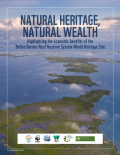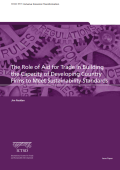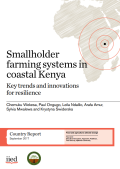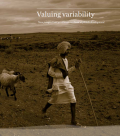
The Global Cleantech Innovation Index (GCII) programme investigates where, relative to GDP, entrepreneurial clean technology companies are most likely to emerge from over the next 10 years – and why. Drawing on a wide range of factors and sources, the study "The Global Cleantech Innovation Index 2017: Which countries look set to produce the next generation of start-ups?" seeks to answer the same question as the 2012 and 2014 GCII reports, namely: which countries currently have the greatest potential to produce entrepreneurial cleantech start-up companies that will commercialize clean technology innovations over the next 10 years? Based on the data contributing to 15 indicators of creation, commercialisation and growth of cleantech start-ups in 40 countries, the study identifies different key trends and shows which countries are falling ahead and below the curve for cleantech innovation.


One of the major contemporary challenges facing developing country firms, and especially small and medium-sized enterprises (SMEs), is the ever increasing number of regulations and sustainability standards required of them if they are to integrate into global value chains. The paper "The Role of Aid for Trade in Building the Capacity of Developing Country Firms to Meet Sustainability Standards" focuses on the potential role that Aid for Trade—aid designed specifically to assist developing countries in overcoming supply-side issues and capture the gains of trade—can play in assisting those developing country SMEs and small producers who are struggling to comply with the sustainability standards required by value chains.


